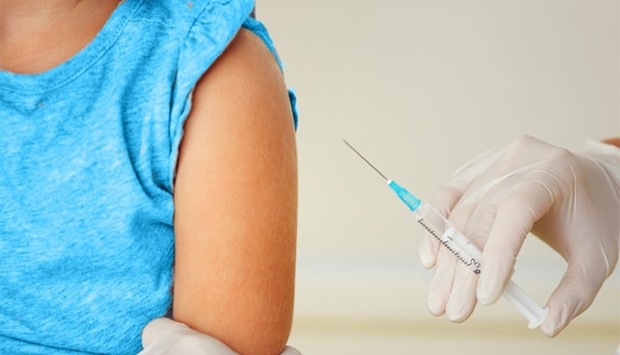Children aged 12-15 can be offered Covid vaccinations, the UK’s four chief medical officers have decided, saying the likely impact in reducing disruption to schools meant such a plan could be clinically justified.
All children in the age group will be offered a first Pfizer jab as soon as possible, with the programme led by in-school vaccination services.
A second injection will be potentially given once more evidence is gathered, so not before the spring term at the earliest.
The announcement, made in a letter to Sajid Javid, the health secretary, will be a significant relief to ministers, who had watched with visible impatience as a series of other countries started to vaccinate older children.
The programme in the UK has so far been limited to children with health problems, with the government’s vaccines watchdog ruling earlier this month that while the health gains from vaccinating the entire age group were greater than the risks, “the margin of benefit is considered too small” to support it.
The Joint Committee on Vaccination and Immunisation (JCVI) has been also considering how many people should receive the third booster Covid jabs, with an announcement also due imminently. Ministers have already said they will proceed with some form of booster programme, and it is expected this will be targeted at older people or those with a clinical vulnerability.
When it made its decision on 12- to 15-year-olds, the JCVI advised that the UK’s four chief medical officers examine the issue further, taking into account wider factors outside the JCVI’s remit, such as the possible impact of vaccinations in minimising school disruption.
The chief medical officers in turn consulted a number of professional medical bodies, as well as public health leaders and others.
Officials stressed that yesterday’s decision was not a dismissal of the JCVI’s view, but built on it.
While vaccinations for the age group are described as having a “not really huge effect” both individually and on the impact of schooling, the combined effect is seen as sufficient.
Another factor considered in the decision was the particular impact of school disruption in more deprived areas, and what officials called the “really problematic” impact of school closures on children’s mental health.
A department of health and social care spokesperson said they had received the advice, adding: “We will set out the government’s decision shortly.”
Officials said it was very much “an offer”, with no compulsion.
Under longstanding medical law, children aged 12-15 are deemed to have some potential competence in giving informed consent on receiving the vaccine, but decisions will be taken on a case-by-case basis.
The letter to Javid said the medical officers noted the JCVI’s verdict, and the risk that Covid vaccinations in schools could affect other vaccination programmes, but said: “The additional likely benefits of reducing educational disruption, and the consequent reduction in public health harm from educational disruption, on balance provide sufficient extra advantage in addition to the marginal advantage at an individual level identified by the JCVI to recommend in favour of vaccinating this group.”
The letter added: “They therefore recommend on public health grounds that ministers extend the offer of universal vaccination with a first dose of Pfizer/BioNTech Covid-19 vaccine to all children and young people aged 12-15 not already covered by existing JCVI advice.”

Children aged 12-15 can be offered Covid vaccinations in UK. All children in the age group will be offered a first Pfizer jab as soon as possible, with the programme led by in-school vaccination services.
